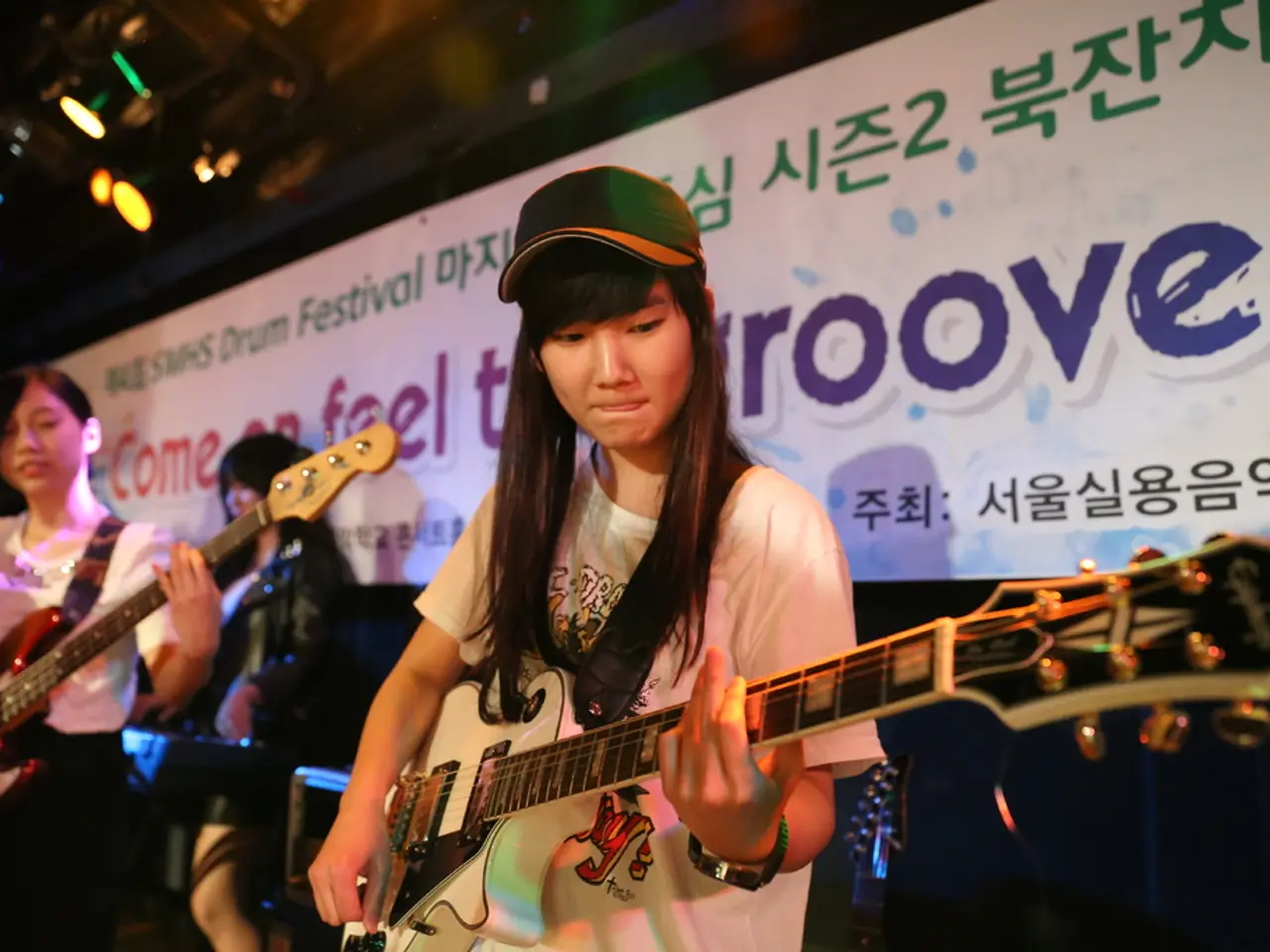Comparing Lyrica and Gabapentin: An Examination of Their Shared and Distinct Features
In the realm of anticonvulsant medications, two commonly prescribed drugs are Lyrica (pregabalin) and gabapentin. These drugs, while sharing similarities, have key differences in their pharmacokinetics, approved uses, side effects, and potential for misuse.
Both Lyrica and gabapentin are gabapentinoids, primarily used for neuropathic pain and seizure prevention. However, Lyrica has FDA approval for specific indications, such as fibromyalgia and certain chronic pain conditions, that gabapentin does not officially hold [1][5].
When it comes to effectiveness and pharmacokinetics, Lyrica boasts higher potency, faster absorption, and greater bioavailability. It reaches peak effects in about an hour, while gabapentin takes 3-4 hours [1][3]. Despite sharing similar mechanisms, Lyrica's more reliable absorption can lead to more consistent effects [3].
Both drugs can cause similar side effects such as dizziness, drowsiness, and cognitive difficulties. However, gabapentin has been associated with potential risks like cognitive decline or dementia with long-term use, prompting calls for closer monitoring [2]. Pregabalin is thought to cause fewer side effects overall due to its pharmacokinetic profile, but individual experiences vary [3].
Concerning misuse potential, both drugs are subject to misuse and have been increasingly prescribed as alternatives to opioids for chronic pain [1]. However, concerns about dependence and abuse exist for both, with pregabalin often regarded as having a somewhat higher abuse potential due to its faster onset and potency [1].
In terms of cost and prescription trends, gabapentin, which has been on the market longer, is generally cheaper than Lyrica [5]. Prescription rates for both have increased, but cost and insurance coverage often influence which drug is chosen [1][5].
It's essential to note that both Lyrica and gabapentin may not be suitable for individuals with certain medical conditions or factors affecting their health [4]. These include heart problems, low platelet count, multiorgan hypersensitivity, kidney problems, depression or another mental health condition, misuse of alcohol or drugs, pregnancy, breastfeeding, or allergies to the drugs.
In conclusion, while Lyrica acts faster, is more potent, and is approved for some indications gabapentin is not (such as fibromyalgia), both drugs share similar mechanisms and side effect profiles. Gabapentin is cheaper and more widely used long-term but has emerging concerns about cognitive risks [1][2][3][5]. Both carry misuse potential, requiring careful medical supervision.
For more detailed information about the effectiveness, side effects, warnings, and when to talk with your doctor about Lyrica and gabapentin, refer to the prescribing information for Lyrica and for gabapentin tablets and capsules and solution, as well as the Medical News Today articles on Lyrica and gabapentin.
If you or someone you know is in crisis and considering suicide or self-harm, please seek support by calling or texting the 988 Lifeline at 988 or chat at 988lifeline.org, texting HOME to the Crisis Text Line at 741741, or finding a helpline in your country with Befrienders Worldwide. If you're not in the United States, call 911 or your local emergency services number if you feel safe to do so. If you're calling on behalf of someone else, stay with them until help arrives. You may remove weapons or substances that can cause harm if you can do so safely. If you're not in the same household, stay on the phone with them until help arrives.
References: [1] Optum Perks. (2021). Lyrica vs gabapentin: What's the difference? Retrieved from https://www.optum.com/resources/health-wellness/lyrica-vs-gabapentin [2] National Institutes of Health. (2020). Gabapentin and Cognitive Function: A Systematic Review and Meta-Analysis. Retrieved from https://www.ncbi.nlm.nih.gov/pmc/articles/PMC7022901/ [3] National Library of Medicine. (2020). Pregabalin vs gabapentin: A systematic review of their pharmacokinetics, efficacy, and safety in neuropathic pain. Retrieved from https://www.ncbi.nlm.nih.gov/pmc/articles/PMC7015737/ [4] Mayo Clinic. (2021). Gabapentin and pregabalin. Retrieved from https://www.mayoclinic.org/drugs-supplements/gabapentin-pregabalin/approval/drg-20072547 [5] Healthline. (2021). Lyrica vs gabapentin: What's the difference? Retrieved from https://www.healthline.com/health/lyrica-vs-gabapentin
- Some treatmentseekers for diabetes might find relief with the help of therapies and treatments like insulin injections or oral medications.
- The predictive capabilities of science in the field of neurological disorders, like Alzheimers, have improved significantly in recent years.
- CBD, a compound derived from cannabis, is often used in skin-care products for its potential benefits on skin-conditions, such as eczema and psoriatic plaques.
- The misuse potential of certain asthma medications should be closely monitored, as they can lead to chronic diseases like addiction.
- Health-and-wellness experts stress the importance of regular fitness-and-exercise and a balanced diet in managing and preventing chronic diseases like cancer and arthritis.
- Eye-health can be significantly affected by various chronic diseases, such as diabetes and hypertension, which necessitate regular check-ups and appropriate medical care.
- Depression is a mental-health issue that can exacerbate or be caused by chronic diseases, making it crucial to seek prompt treatment.
- The misuse of certain pharmaceutical drugs, such as Lyrica and gabapentin, has led to increased concerns about addiction and mental-health issues, such as depression.
- Nutrition plays a vital role in managing various medical-conditions, including type 2 diabetes and chronic respiratory conditions, like chronic obstructive pulmonary disease (COPD).
- Therapies-and-treatments like cognitive behavioral therapy (CBT) and mindfulness-based stress reduction (MBSR) can be effective for people with mental-health issues, such as anxiety and depression.
- Research into the effects of Lyrica and gabapentin on skin-conditions, like neurogenic pruritus or atopic dermatitis, is a growing area of interest in the medical community.
- The use of Lyrica has been approved for the treatment of specific chronic pain conditions, such as civilian, herpetic post-ganglionic neuralgia, and fibromyalgia.
- AQ (adjusted quartile) can be a useful predictive tool in understanding and managing the progression of some illnesses, like juvenile idiopathic arthritis, in the realm of medical research.




